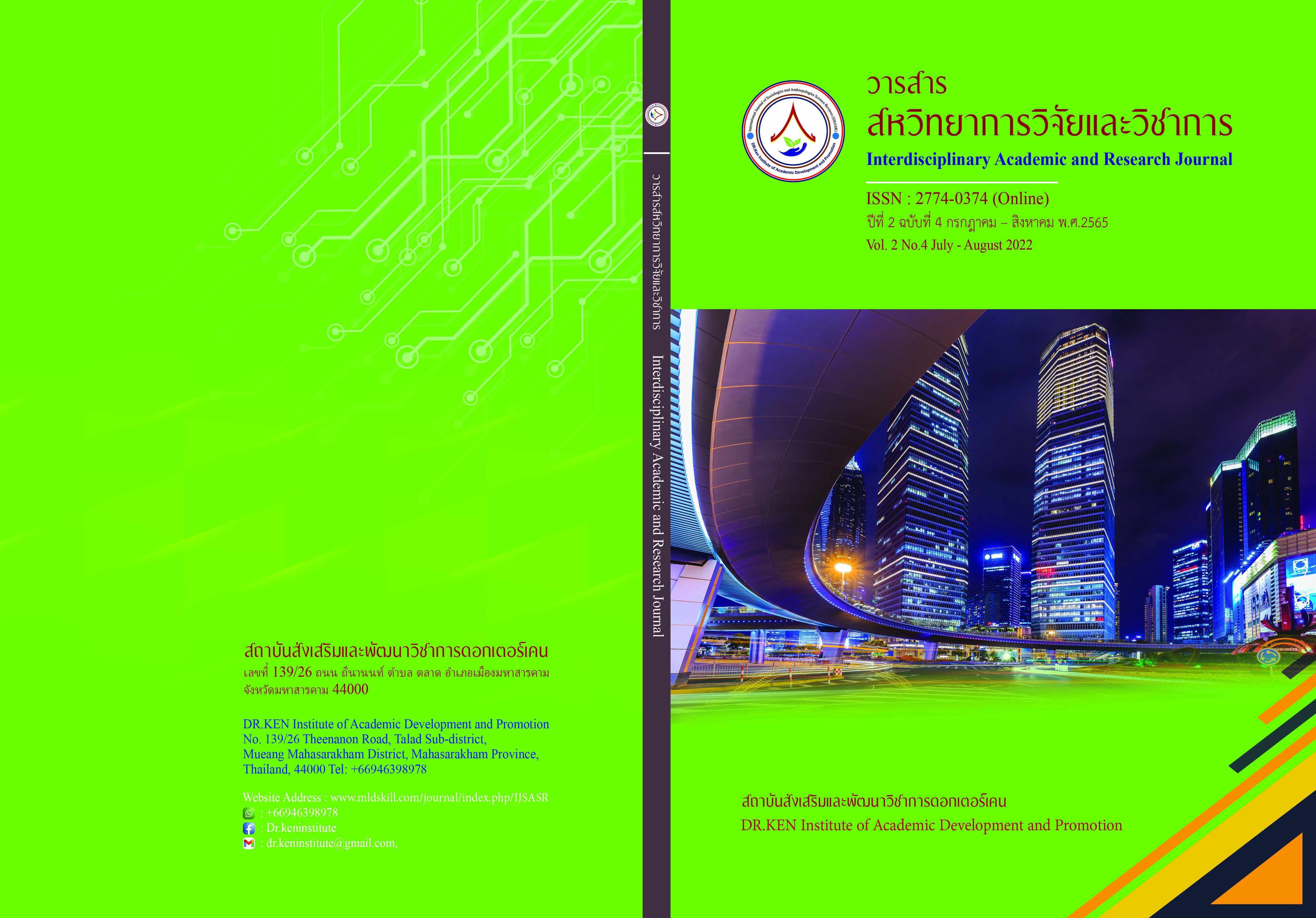A Comparison of Political Thought in Thailand after The Military Coup of 2014
DOI:
https://doi.org/10.14456/iarj.2022.66Keywords:
Comparative Politics; , Political Thought; , The Military Coup of 2014Abstract
After the 2014 coup, a recurring political phenomenon was found in the comparison of political ideas of political scientists in the dimensions of the political regime. Political scientists defend ideology by arguing for proof by convincing audiences to agree and accept it. Thus, this research article explores comparative political thinking in Thailand after the military coup of 2014. The methodology of this research was the documentary research that was selected after the military coup of 2014 and compared political issues between Thailand to foreign countries. This research found that comparative political thinking can be classified into four types: (1) democratic ideologic mode. (2) politician mode. (3) lawyer mode. and (4) political scientific mode. The results of exploration hypothesized that the political scientific mode was the empirical rethinking to change mindsets and unlearn to strengthen and resilient the democratic development in the context of Thailand.
References
จอห์น อึ้งภากรณ์. (2560) เหมือนและต่างของความเป็นทรัมป์ และ ประยุทธ์. [Online] https://www.bbc.com/thai/thailand-38866040 [4 กุมภาพันธ์ 2017]
ชัชพันธุ์ ยิ้มอ่อน. (2553). การวิพากษ์รัฐศาสตร์แนวพฤติกรรมศาสตร์ตามกรอบแนวคิดของฮาเบอร์มาส. กรุงเทพฯ: จุฬาลงกรณ์มหาวิทยาลัย.
เชือก โลติช่วย. (2559). เปรียบเทียบกลยุทธ์การสื่อสารของรัฐบาลนางสาวยิ่งลักษณ์ ชินวัตร และรัฐบาลพลเอกประยุทธ์ จันทร์โอชา. กรุงเทพฯ : จุฬาลงกรณ์มหาวิทยาลัย
ประพันธ์ คูณมี. (2564). "ระบอบทักษิณ" กับ "ระบอบประยุทธ์ . [Online] https://www.thansettakij.com/columnist/484183 [16 มิ.ย. 2564]
ยุทธพร อิสรชัย. (2560). เหมือนและต่างของความเป็น ทรัมป์ และ ประยุทธ์. [Online] https://www.bbc.com/thai/thailand-38866040 [4 กุมภาพันธ์ 2017]
วันชัย ตันติวิทยาพิทักษ์. (2565). ความแตกต่างระหว่างสองผู้นำ. [Online] https://www.the101.world/two-leaders/ [20 Jun 2022]
สุขุม นวลสกุล. (2560). เหมือนและต่างของความเป็น ทรัมป์ และ ประยุทธ์. [Online] https://www.bbc.com/thai/thailand-38866040 [4 กุมภาพันธ์ 2017]
อภิพล แซ่ตั้ง. (2562). นโยบายต่างประเทศของไทยต่อจีนในศตวรรษที่ 21: ศึกษาเปรียบเทียบรัฐบาลทักษิณ ชินวัตร กับรัฐบาลพลเอกประยุทธ์ จันทร์โอชา. กรุงเทพฯ: มหาวิทยาลัยธรรมศาสตร์.
อาทิตย์ ทองอินทร์ (2562). แนวทางการศึกษาการเมืองเปรียบเทียบ: ความรู้พื้นฐานเชิงทฤษฎี. วารสารการบริหารปกครอง. 8 (2), 533-556.
Almond, G. (2002). Ventures in Political Sciences: Narratives and Reflections. Boulder COL: Lynne Rienner.
Diamond, Larry. (1992). Economic development and democracy reconsidered. American Behavioral Scientist. 35 (5), 450-99.
Eliassi-Rad, T., Farrell, H., Garcia, D. et al. (2020). What science can do for democracy: a complexity science approach. Humanit Soc Sci Commun. 7 (30) https://doi.org/10.1057/s41599-020-0518-0
Huntington, S. (1996). Democracy for the Long Haul. Journal of Democracy. 7(2), 3-13.
McCormick. J. (2019). Comparative Government and Politics an Introduction. Basingstoke, Hampshire: Palgrave Macmillan.
Oneil. P. H. (2018). Essentials of Comparative Politics. W.W.Norton: Canada.
Paine, T., & Bonner, H. B. (1921). Rights of man. London: Watts.
Downloads
Published
How to Cite
Issue
Section
License
Copyright (c) 2022 วรรณลดา กันต์โฉม, ชัชพันธุ์ ยิ้มอ่อน

This work is licensed under a Creative Commons Attribution-NonCommercial-NoDerivatives 4.0 International License.
Copyright on any article in the Interdisciplinary Academic and Research Journal is retained by the author(s) under the under the Creative Commons Attribution-NonCommercial-NoDerivatives 4.0 International License. Permission to use text, content, images, etc. of publication. Any user to read, download, copy, distribute, print, search, or link to the full texts of articles, crawl them for indexing, pass them as data to software, or use them for any other lawful purpose. But do not use it for commercial use or with the intent to benefit any business.
















.png)


